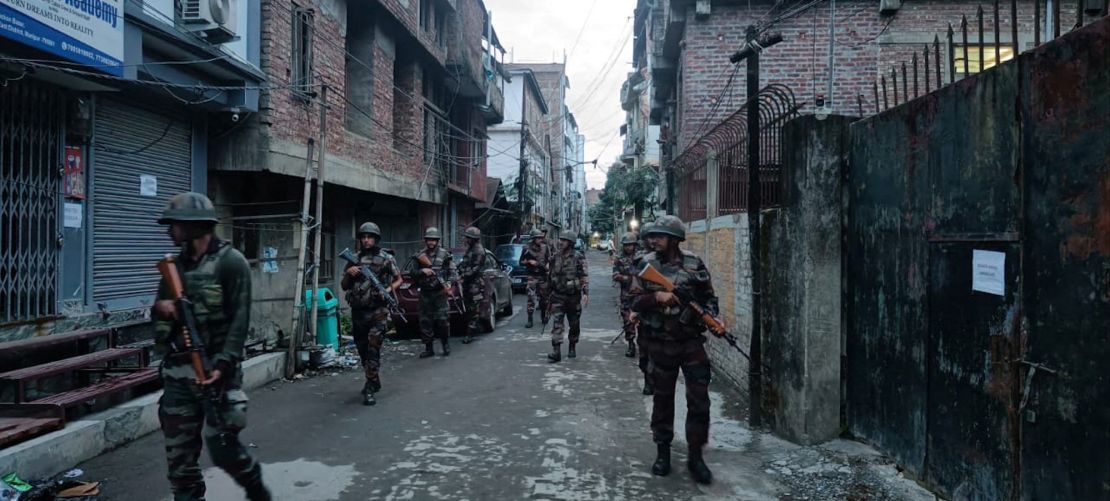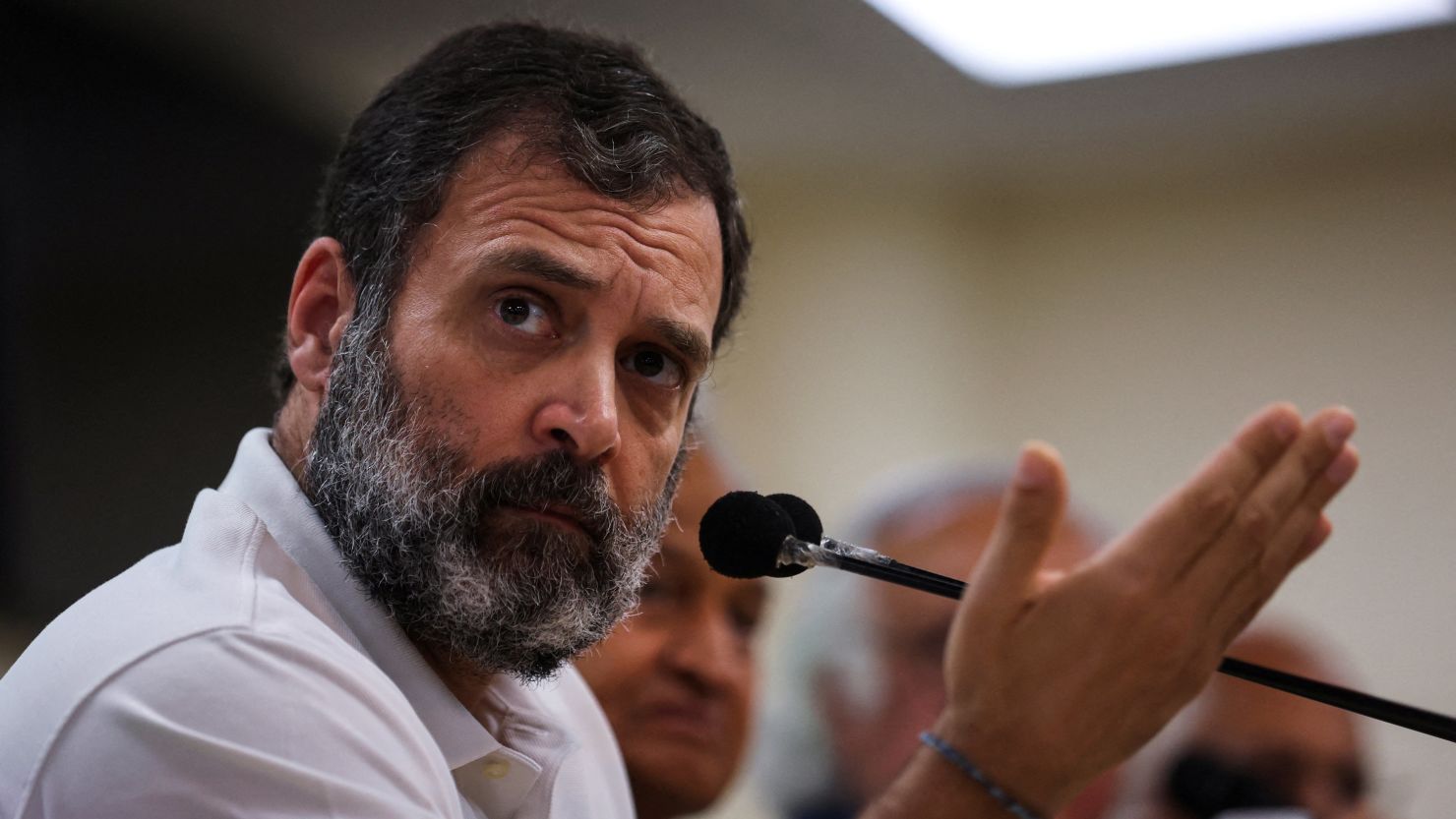The embattled leader of India’s main opposition Congress party visited crisis-hit Manipur and met with its displaced residents on Thursday, after his convoy was initially stopped by police near the state capital.
Rahul Gandhi’s visit comes as the northeastern state grapples with ongoing ethnic violence in which more than 100 people have been killed and tens of thousands more driven from their homes. Internet services have been cut for Manipur’s nearly 3 million residents and travel restrictions have been imposed, making it increasingly difficult for people to travel into the state.
The unrest has presented Prime Minister Narendra Modi and his ruling Bharatiya Janata Party (BJP) with a rare image of instability as opposition politicians accuse the government of showing a lack of urgency and failing to abate the violence.
Modi has yet to comment publicly on the situation and has not visited Manipur since the violence erupted in May.
Gandhi accused the BJP of blocking his vehicle from entering the state on Thursday. He eventually flew in to the state capital Imphal later that day.
“Landed in Manipur today, where I will be visiting relief camps and meeting the families of those affected by violence that has engulfed the state. I will also be meeting with members of the civil society,” he wrote on Facebook. “Restoration of peace is the top priority. Manipur needs healing, and only together we can bring harmony.”

The BJP denied it had attempted to prevent Gandi from entering Manipur, saying police had stopped the opposition leader’s car for security reasons after protests broke out in the state against his visit.
BJP spokesperson Sambit Patra also claimed that Gandhi is using Manipur as a pawn for his own political gain.
“Sensitivity is far more important than stubbornness,” Patra said during a news conference Thursday. “We are a democratic country, no one stopped Rahul Gandhi from going to Manipur but the administration in the state said that there have been a lot of protests amid the news of (his visit).”
Gandhi, former president of the Congress party and the great-grandson of India’s first prime minister Jawaharlal Nehru, has been the subject of an ongoing legal battle that his supporters say is politically motivated.
He was found guilty of defamation in March and stripped of his lawmaker status in a case related to a speech he made in 2019, in which he referred to thieves as having the same surname as Modi.
The 53-year-old politician is one of the few figures to have the kind of star power and name recognition to challenge the prime minister.
Ethnic violence
Manipur, a lush, hilly state which borders Myanmar, is home to an ethnically diverse group of Sino-Tibetan communities, each with their own language, culture and religion.
It has grappled with ethnic conflicts and insurgencies since India’s independence from British rule in 1947, but the current unrest has seen some of the worst violence in recent years.
Violence broke out in Imphal on May 3 after thousands of students, mostly from the Kuki tribe, took part in a rally against the majority Meiti ethnic community, who were demanding special tribal status that would allow them to buy land in the hills and give them more opportunity for government jobs.
The Meiteis, a largely Hindu ethnic group who account for about 50% of the state’s population, have for years campaigned to be recognized as a scheduled tribe. If they are given this status, other ethnic groups – many of whom are Christian – say they fear they will not have a fair chance for jobs and other benefits.
The Metei community dominates positions within the state government, and have been privy to more economic and infrastructural advancement than the other ethnic groups.
They live mostly in the more developed but geographically smaller Imphal Valley, while Kuki groups live predominantly in agriculturally rich and geographically larger protected hill districts.
The Kukis fear the change in status could result in their steady removal from a protected area they have occupied for decades and leave them vulnerable to exploitation.

